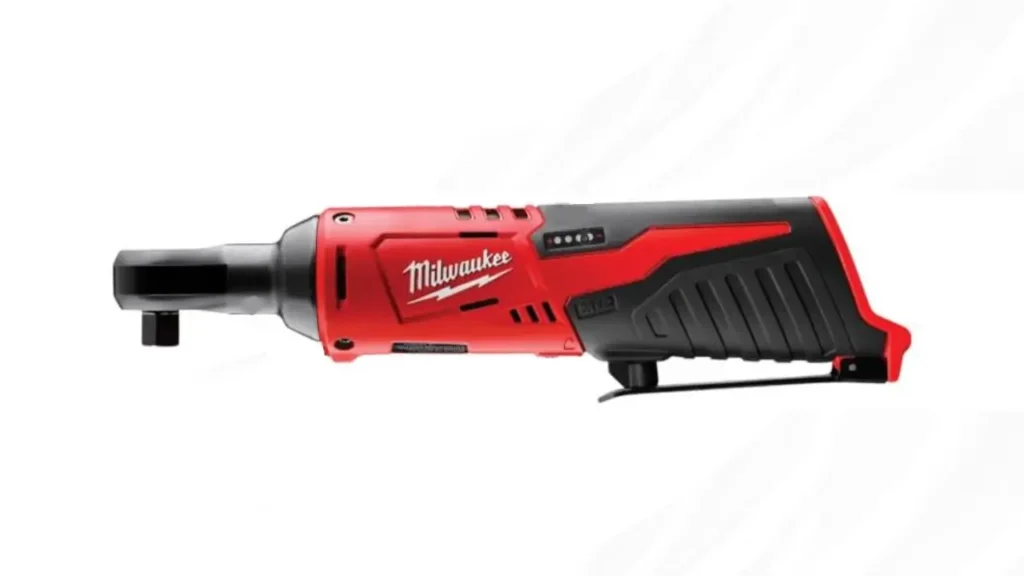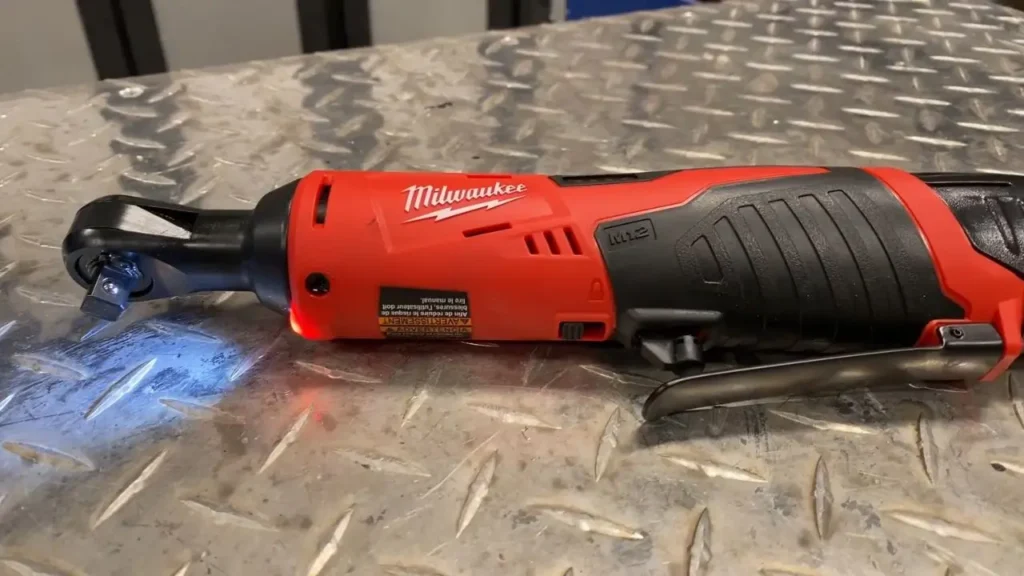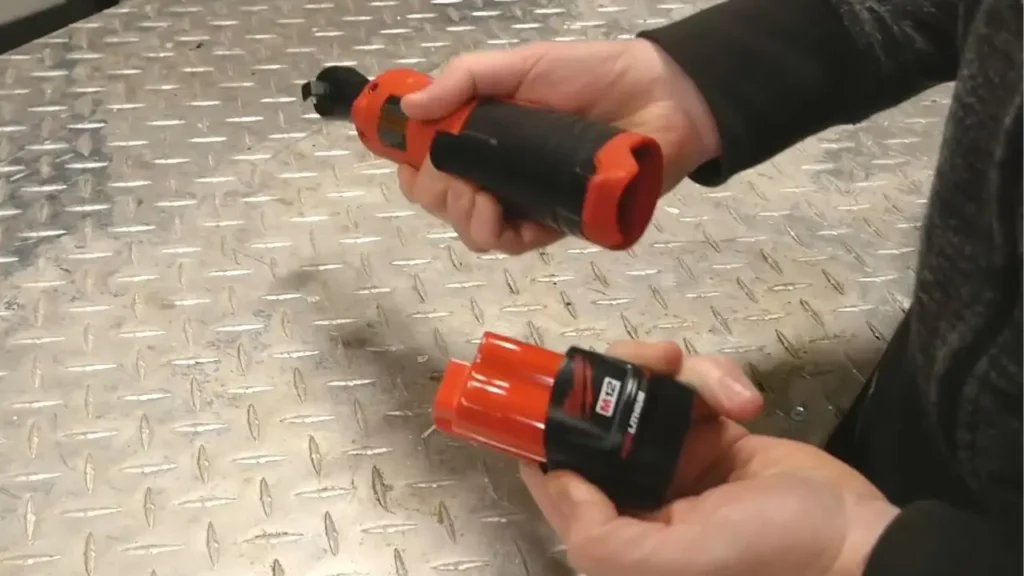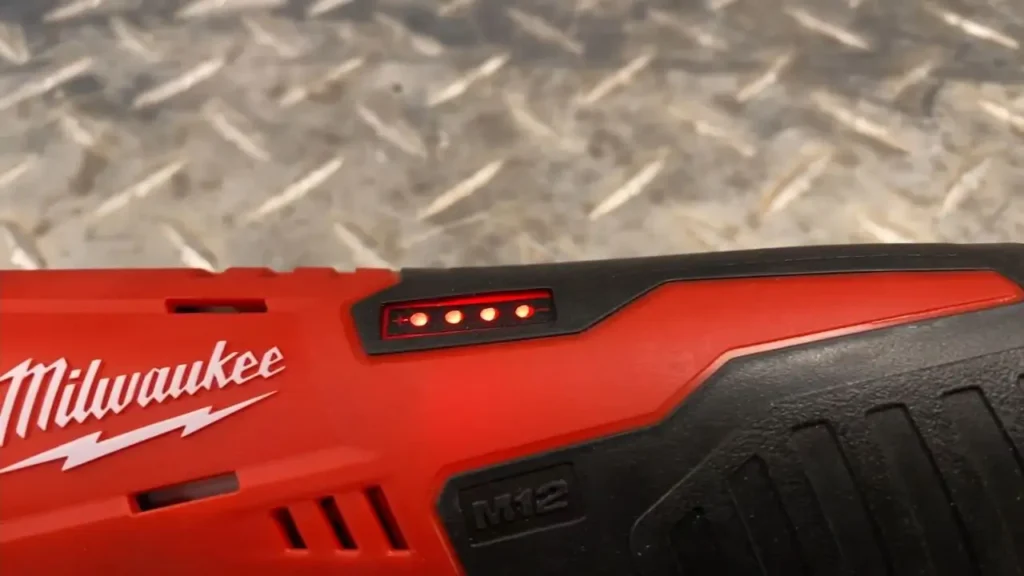Quick Summary: Milwaukee 2457 M12 Ratchet Review: What a Mechanic Learned
- Content Type: Hand Tested Review
- Last Updated: July 31, 2025
- Fact-Checked By: Azlan - Smart AI Gears team member
- Rating: 4.6/5
- Best For: Mechanics and DIYers needing a compact, budget-friendly cordless ratchet for tight engine bay work.
- What’s Great: Its slim head and lightweight design excel in cramped spaces, offering precise control and impressive durability.
- What’s Not: You'll still need to manually break extremely tough fasteners before using the ratchet.
- Buy If: You prioritize maneuverability and value in a cordless ratchet over maximum torque, especially for automotive tasks.
- Avoid If: You solely work with heavy-duty fasteners requiring extreme torque, where a bigger, more powerful tool is essential.
- Affiliate Link Present: Yes
- Price at Review Date: Around $149 for the bare tool, with sales sometimes dropping it to $72-$98.
- Available At: Major tool retailers and online stores selling Milwaukee products.
The Milwaukee 2457 M12 Ratchet made a huge difference in how I handle repairs in tight spots around the shop.

I’ve been working with this cordless 3/8″ ratchet for half a year now using it almost every day. It became clear why more than 7,500 buyers have given it a solid 4.6-star rating. At just 1.9 pounds and over 10-3/4″ long, it packs an impressive punch—35 ft-lbs of torque at speeds of 250 RPM—all without needing an air hose dragging around.
I’ve used the Milwaukee 2457-20 on a ton of repair jobs, from simple oil changes to tougher engine fixes. As a mechanic, I’ve found its slim head and locking trigger switch super useful when working in tight spaces like engine bays. Even though newer models with brushless motors are now available, this original version still holds up and costs less around $150 to $160.
Here, I’ll break down my hands-on experience with this 3/8″ Milwaukee ratchet, compare it with the newer electric ratchets, and help you figure out if this tool is worth adding to your setup.
Disclaimer
Affiliate Disclaimer
I want to be 100% honest with you. Some links you see in my post are ‘affiliate links’. This just means if you click one of my links and then buy a tool, I get a very small money from the shop.
This does not cost you any extra money at all. The price is the same for you.
This small help lets me keep this blog alive and test more tools for you. Please know, I only link to tools I have used myself or received a verified review of the tool and believe are good. My words and my review are my own, nobody pays me to say nice things. Thank you for your support!
Image Information
All product images used in this post are provided by the author and claimed to be their own usage. According to the author, these images are either self-clicked, taken during hands-on testing, or screenshots captured for review purposes. If you believe any image violates your rights, please contact us for proper credit or removal.
Price & Stock Information
The product prices and availability mentioned in this post are accurate as of the time of publishing. However, prices may change on the seller’s website without notice. Please always check the latest price and stock status on the official product page before making a purchase decision.
- RECESSED FORWARD – BACKWARD SWITCH on the back of the head prevents you from accidental actuations in the middle of an i…
- LOW PROFILE HEAD DESIGN allows you to work in an engine bay without issue
- ONBOARD FUEL GAUGE: Lights on the side of the unit will let you know how much power you have left
What Is the Milwaukee 2457 M12 Ratchet and Who Should Use It?

The Milwaukee 2457-20 has become a trailblazer in cordless ratchets offering the strength of pneumatic tools in a battery-powered setup. It uses a 12-volt motor creating 35 ft-lbs of torque and 250 RPM, which gives it the effectiveness of air tools without needing hoses.
Milwaukee Electric Ratchets at a Glance
Milwaukee’s 2457-20 kicks off the first generation in their electric ratchet series. It comes with a 3/4″ low-profile head that makes it perfect to reach tight spaces where normal pneumatic ratchets fall short. Its reinforced steel housing ensures long-lasting toughness. The variable-speed metal trigger lets you stay in control while using it. A built-in LED light helps you see in lit spaces, like engine bays or other low-light spots making it a handy choice in those situations.
Designed Users: Mechanics, Technicians, and DIYers
The M12 ratchet works well for:
- Automotive mechanics working inside packed engine compartments
- Maintenance workers who need portable tools
- Repair pros managing daily take-apart needs
- DIY lovers fixing furniture or appliances at home
The tool measures 10-3/4 inches long and weighs just 1.9 pounds when paired with a battery making it easy to carry around for professionals who move from one job site to another. Its combination of strength and accuracy works well to loosen bolts with moderate torque and drive them in or out.
How It Fits Into the M12 Ecosystem

The 2457-20 works with Milwaukee’s M12 battery platform making it compatible with a wide range of tools. When bought as a bare tool without a battery, it connects with M12 REDLITHIUM batteries you already own. This connection relies on Milwaukee’s REDLINK Intelligence system. It boosts tool performance and guards against overload by enabling communication between the tool, battery, and charger.
The built-in fuel gauge lets users track battery charge, helping cut down delays while working on tasks. To expand their set of tools, professionals using the M12 system can add this ratchet without needing to switch to a new battery setup.
Gen 1 vs. Gen 2: Is an Upgrade Worth It?

Looking at Milwaukee’s cordless ratchets shows some important differences to think about before upgrading. After testing them , I noticed that each version has unique perks, depending on what you need out of it.
Torque: 35 ft-lbs vs 55 ft-lbs
The clearest difference lies in their power. The older Milwaukee 2457-20 gives 35 ft-lbs of torque, which works well enough for everyday fastening jobs. On the other hand, the Gen 2 Fuel model (2557-20) steps it up with 55 ft-lbs of torque. That’s a 57% jump in max force offering a noticeable improvement.
Even though the torque specs differ a lot real-world use shows the torque difference doesn’t always matter much. People often loosen fasteners by hand first, no matter which model they use. One mechanic shared, “I always snugged up by hand so the ‘higher torque’ was useless to me.”
Head Size and Access Limitations
The head size is the biggest change between the two versions. The first-generation model has a small low-profile 3/4-inch head, which helps it fit into tight spots. The head on the second-generation Fuel is bigger and can make reaching into tight engine areas harder.
The size difference sheds light on why some mechanics remain loyal to the original model. Discussions on forums often mention, “There are people that prefer the brushed ratchet because of its size. It’s one of the very few brushed tools that remains popular.”
Comparing Weight and Ergonomics
Weighing just 1.9 lbs and measuring 10.75 inches, the original 2457-20 stands out for its portability. On the other hand, the Gen 2 Fuel tool, at 11.84 inches and 2.84 lbs, adds an extra pound. This added weight can make longer tasks less comfortable to handle.
Why Gen 1 is Still a Smart Pick
The Gen 1 stays useful for many reasons. Its price of around $129, compared to $179 for the Fuel version, makes it a better deal. Its small size plays a big role in making it the go-to choice to use when there’s no extra space in automotive work.
Many mechanics working in tight conditions or handling small fasteners rely on the original model. Its balance of power, weight, and size works well in those environments. One person said, “I bought this over the high speed or the 55 ftlb torque ratchet because of its size it’s more compact and the head is not as beefy.”
Long-Term Performance: A Mechanic’s 6-Month Experience
After using my Milwaukee 2457 daily for six months in a professional setting, I can say it has lived up to its reputation. This longer period of use provided a clearer picture of what it does well and where it may fall short—things that weren’t so obvious in the first few weeks.
Durable Enough for Daily Shop Work
The Milwaukee 3/8″ ratchet has handled tough shop conditions without showing much wear. Even after dropping it on concrete floors, the metal casing still looks solid. The trigger feels just as sharp and hasn’t developed the sticky feel I’ve seen happen with other tools over time. Its LED light still works , though I have had to clean off oil splatters here and there to keep it shining .
Control of Trigger and Steady Speed
The variable speed trigger gives you great precision during daily use. The 2457-20 lets you apply torque when handling delicate assemblies offering reliable control. Its top speed of 250 RPM stays steady even as the battery runs low, though it may drop in the last few minutes of use.
Using It by Hand to Break Bolts
A lot of people forget how good this tool is when used by hand. The ratcheting mechanism can handle bolts that go beyond the 35 ft-lbs torque limit with ease and no stiffness. It’s like getting two tools in one small package.
Maintenance Jobs It’s Good For
The Milwaukee 2457-20 is good for:
- Removing or installing valve covers and oil pans
- Getting to fasteners buried deep in engine bays
- Dealing with multiple bolts of the same size
- Getting into tight spaces where air tools can’t fit
Pricing and Value: Is the 2457-20 a Good Buy in 2024?
To decide if buying the Milwaukee 2457-20 makes sense, you need to compare its price with similar tools available. When thinking about this ratchet’s cost, it’s worth asking if it offers enough value to satisfy both mechanics and DIY enthusiasts today.
Current Price and Kit Choices
The Milwaukee 2457 often sells for about $149 as a standalone tool, but the price changes between stores. Sometimes sales drop the cost to somewhere between $72 and $98. If you want everything in one package, Milwaukee sells kits that include batteries or bundles with other tools. These packages cost between $200 and $300.
Cost vs. Fuel Models
The 2457-20 is about $30 to $50 less than the Fuel models. If you value affordability over peak power performance this is the more budget friendly option.
Warranty and Support
Milwaukee backs the 2457-20 with a 5 year manufacturer warranty and 2 year warranty on REDLITHIUM batteries. This covers any defects in materials or workmanship and gives you confidence in a tool you’ll be using frequently.
Best Use Cases for the Price
This is a great option at this price for:
- Weekend DIYers working on light to moderate car repairs
- Professionals looking for a budget backup ratchet
- Someone who wants to get into the M12 system without breaking the bank
Conclusion
I’ve used the Milwaukee 2457 M12 cordless ratchet in my shop for six months, and it earned its spot in my gear. Its small 3/4″ head and lightweight 1.9-pound design make it a go-to tool for tight spaces where bigger options fail to fit. While the newer Fuel models bring more torque at 55 ft-lbs compared to this model’s 35 ft-lbs, this original version offers an excellent mix of power, size, and cost that suits plenty of mechanics just fine.
This ratchet works well when dealing with fasteners in tight engine spaces where air hoses aren’t a problem. The speed trigger still allows precise handling even after being used for months. The strong metal body has survived many drops onto concrete floors in the shop. Its battery power is solid and lasts through a whole day of on-and-off use.
At around $150 as a bare tool, the 2457-20 offers good value next to the more expensive Fuel options since it comes with a 5-year warranty. DIYers working on the weekends and professionals wanting an affordable way into Milwaukee’s M12 lineup should check this ratchet out. Pro mechanics who need to work in tight spots may like this smaller first-gen version more than the newer, bulkier models.
The Milwaukee 2457 has some drawbacks. You’ll still need to loosen tough fasteners by hand first before letting the electric ratchet take over. Even so, this tool changes how mechanics handle work in cramped areas. If you’re done wrestling with air hoses or manual ratchets in tight spots, this M12 cordless option delivers solid results that meet professional needs every single day.
Key Points to Note
After six months of real-world use here’s what mechanics and DIYers should know about the Milwaukee 2457 M12 ratchet.
- Small size beats big power in tight spots – The Gen 1’s compact 3/4″ head and lightweight 1.9 lb design often work better than newer high-torque tools when working inside crowded engine compartments.
- 35 ft-lbs torque gets most everyday jobs done – While the power is lower than Gen 2 models, it’s enough to tackle usual car repairs if you loosen tough bolts first.
- Built tough to survive heavy use – After six months in a busy shop, it showed little wear, the trigger stayed responsive, and the LED still worked fine even after getting dropped on concrete.
- Great value at the $150 price mark – Priced $30-50 lower than Fuel models, it includes a 5-year warranty, which makes it a solid pick for DIY enthusiasts and professionals looking to save money.
- Battery lasts a full workday – Delivers steady 250 RPM performance during the entire charge and has enough runtime to handle on-and-off use in professional settings.
The Milwaukee 2457 shows that the first design can sometimes remain the top option when tight spaces matter more than hitting the highest torque numbers.
FAQs
- Q1. Is the Milwaukee 2457 M12 ratchet a good pick for DIY mechanics? The Milwaukee 2457 M12 ratchet works great for DIY mechanics. Its small build cordless design, and 35 ft-lbs of torque make it perfect to handle light or medium automotive work. It comes in handy in tight spots where bigger tools won’t fit.
- Q2. How does the Milwaukee 2457 compare to the newer Fuel models?
- The Milwaukee 2457 fits better in tight spaces because of its smaller 3/4″ low-profile head. It trades some torque power—35 ft-lbs compared to the 55 ft-lbs offered by Fuel models—but stays lighter and easier to handle. Many mechanics prefer it when working inside cramped engine compartments.
- Q3. How long does the battery last on the Milwaukee 2457 ratchet?
- The Milwaukee 2457’s battery lasts all day with on-and-off use without needing to be recharged. It runs 250 RPM steady until the battery dies.
- Q4. Is the Milwaukee 2457 professional grade? Yes, pros find the Milwaukee 2457 tough enough for heavy use. After 6 months of daily use in a shop, it shows minimal wear, responds to the trigger and the LED light still works after being dropped on concrete multiple times.
- Q5. Is the Milwaukee 2457 a good buy in 2024? $150 as a bare tool, the Milwaukee 2457 is a good value. $30 to $50 less than Fuel models and 5 year warranty. Power and compact, it’s a favorite among DIYers and cost conscious pros.



